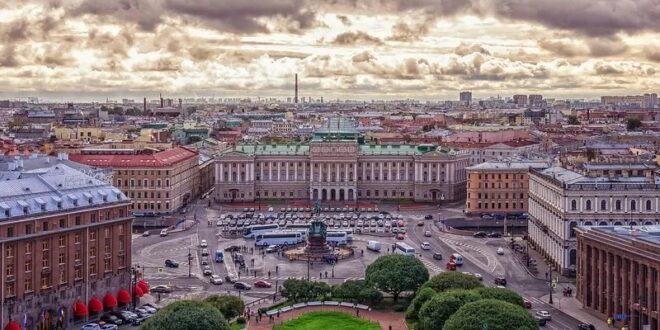Even before it shuttered the Finnish consulate in St. Petersburg last week, Moscow had closed the consulates of the Baltic countries, the United States, the UK, and the Netherlands. But the closure of the Finnish outpost there effectively slammed shut Russia’s famed “window on Europe” because it had issued more visas than any of the others.
Over the course of the Putin years, Vadim Shtepa, a Russian regionalist based in Tallinn, says, the Finnish consulate had issued every year approximately 500,000 visas to residents of the Russian Federation’s northwestern quadrant (rus.postimees.ee/7812408/vadim-shtepa-zahlopnutoe-okno-v-evropu-ili-kak-kreml-otomstil-finlyandii and region.expert/window/).
Not only did this make it easier for residents of St. Petersburg to go to Helsinki than to go to Moscow but it promoted the formation of “a definite mental difference” in the ways in which people in and around St. Petersburg think and the ways in which those who live or focus on Moscow do, the editor of the Region.Expert portal continues.
As a result of Moscow’s actions, Shtepa says, “today’s St. Petersburg has actually lost its symbolic mission as ‘a window on Europe,’ a mission praised by Pushkin.” Without this window, how can “’the most European city in Russia’” survive within Russia? The answer may come more quickly than many suspect.
When Kyiv thought about renaming Russia Muscovy, the Kremlin was furious, the regionalist says. “But in reality, the Russian authorities themselves are carrying out just such a transformation. Having declared almost all European countries ‘unfriend,’ Russia really is falling back into the era of the isolationist Muscovy of Ivan the Terrible.”
According to Shtepa, “a multitude of present-day Petersburgers think not imperially but regionally,” something that visas to Finland helped promote. “Political emigres from Petersburg often speak about Ingria (Ingermanland);” and more important, they draw parallels between their situation and that of Vienna.
Before the first world war, Vienna was the capital of an extensive Austro-Hungarian empire, “but today it remains the capital of an extremely small but well developed Austria. And for Ingria, [such activists] see a similar perspective.” Now, some of them are even forming a unit for Free Ingria in the Ukrainian army.
If that project takes off, Shtepa suggests, then “possibly, Ingria as a political subject will be reborn in Ukraine.” And more than that, Estonia will acquire a very different and far friendlier and less threatening eastern neighbor. “Today, that may seem like a fantasy, but the events of recent years and even months have already caused many to cease to be surprised by such things.”
 Eurasia Press & News
Eurasia Press & News




